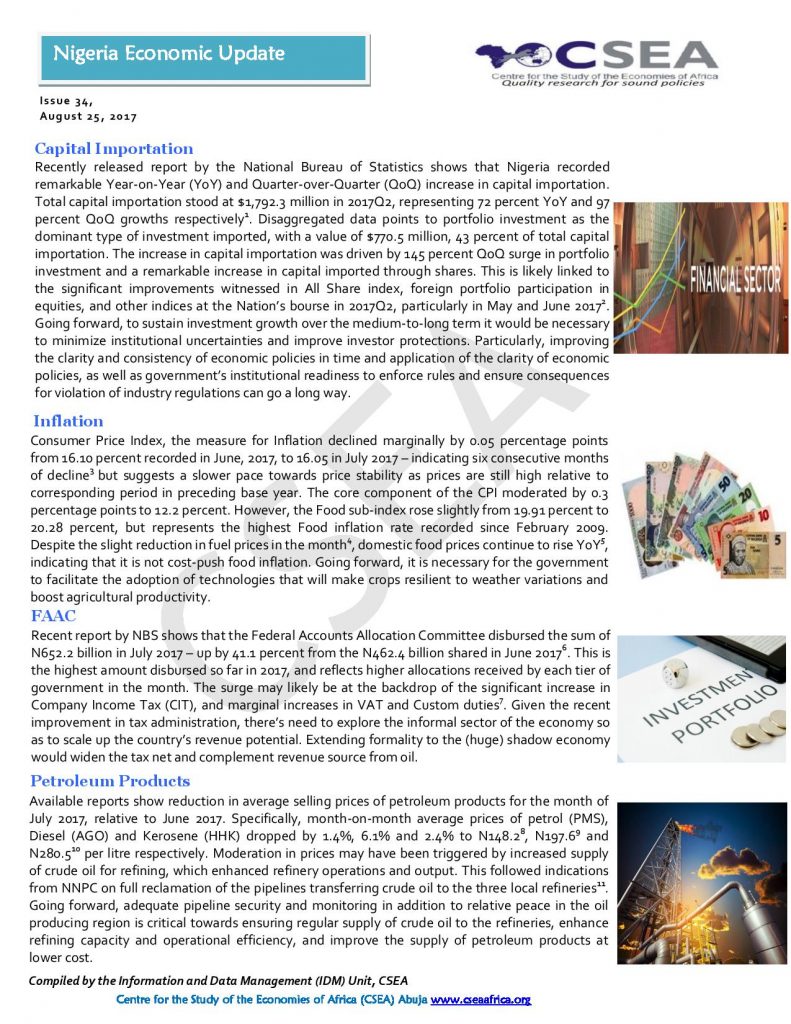Macroeconomic Report & Economic Updates

September 12, 2017
Nigeria Economic Update (Issue 34)
Recently released report by the National Bureau of Statistics shows that Nigeria recorded remarkable Year-on-Year (YoY) and Quarter-over-Quarter (QoQ) increase in capital importation. Total capital importation stood at $1,792.3 million in 2017Q2, representing 72 percent YoY and 97 percent QoQ growths respectively. Disaggregated data points to portfolio investment as the dominant type of investment imported, with a value of $770.5 million, 43 percent of total capital importation. The increase in capital importation was driven by 145 percent QoQ surge in portfolio investment and a remarkable increase in capital imported through shares.
Related
Nigeria Economic Update (Issue 51)
According to figures released by the Nigeria Bureau of Statistics, employment growth lagged during the recession period, and worsened unemployment/underemployment rates few quarters after. Specifically, unemployment rate rose to 18.8 percent in 2017Q31, up from 16.2 percent in previous quarter (the recession-exit quarter) and 13.9 percent in corresponding quarter. Disaggregated figures reveal that the number of unemployed and underemployed persons in the labour force increased by 17 percent and 2 percent respectively, to 15.9 million and 18.0 million in 2017Q3, majority of which are young persons within ages 15-34.
Nigeria Economic Update (Issue 23)
Recently released report by the NBS shows an increase in Unemployment and Underemployment rates for 2016Q4 relative to preceding and corresponding quarters. The unemployment rate, at 14.2 percent, indicates a 3.8% points YoY4increase, and a 0.3% points QoQ increase with the number of unemployed people increasing by 351,051 persons. Similarly, underemployment rate grew (QoQ) by 1.3% points to 21%, representing about 17 million underemployed persons as at the quarter. The rise in unemployment/underemployment rate is attributable to the disproportionate rise in labour force vis--vis job creation, in addition to slow-down in economic/business activities during the quarter. Going forward, the government should make efforts to strengthen and expand Nigerias entrepreneurial infrastructure.
